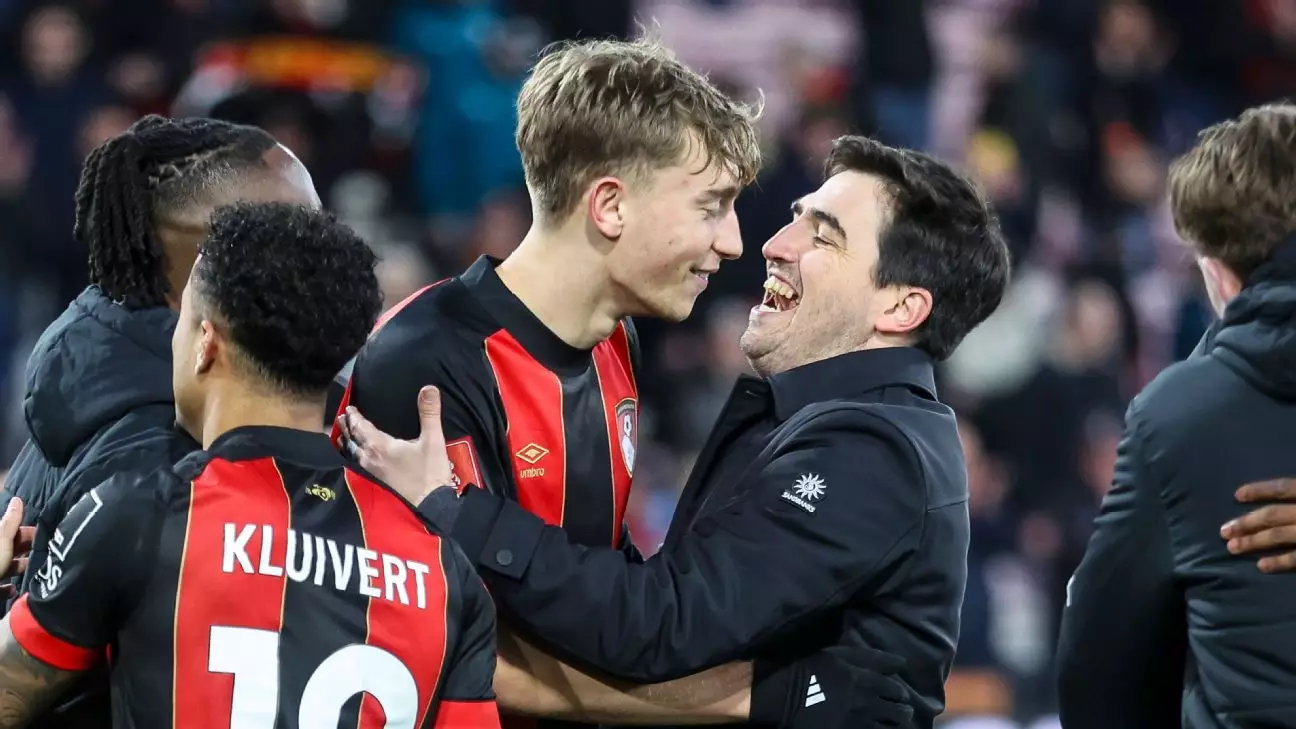The landscape of football has changed dramatically over the last two decades, yet the systems in place to award and recognize young talent have failed to keep pace. The PFA Young Player of the Year award, which traditionally serves to honor the most promising young talents, has become increasingly outdated and inconsistent. Eligibility criteria stipulate an age limit of 21 years at the start of the season, a narrow scope that often overlooks athletes who show prodigious skill and contribute significantly in their early twenties.
In stark contrast, the Premier League’s Young Player of the Season award is more flexible, extending its eligibility to those as old as 23. This discrepancy suggests a disconnect between the actual age at which players are ready to excel at the highest level and the criteria used to reward them. The current structures fail to capture the essence of what it means to be a young footballer today. Players now enter the professional arena much earlier, often racking up hundreds of appearances and even participating in high-stakes tournaments before they reach their twenties. The intended spirit of these awards—to celebrate new talent—is lost in a system that rewards players who have already cemented their places in the sport.
Borrowing Inspiration: A New Award Format
What if we could reinvent the Young Player of the Year award to truly celebrate the next generation? A model borrowed from the NBA could serve as an excellent benchmark. By redefining the award as the “Rookie of the Year,” we could set clear parameters that reward players entering their first full Premier League season while still aged 19 or under as of a certain date. This would not only focus on players who are fresh to the league but also ensure that we are recognizing those who are genuinely breaking through into the professional realm.
Strong performers often come from a variety of paths—some are homegrown talents, while others arrive from different clubs looking to make a significant impact. The complexities of this proposal can enhance the competitiveness among young talents while giving fans something exciting to watch. It acknowledges that in today’s game, the definition of youth has evolved and requires a more accurate reflection of players’ readiness to perform on the biggest stage.
Highlighting Exciting Young Talents
Shifting the focus to this “Rookie of the Year” format opens the door to recognizing emerging stars who would have previously been overlooked due to age-related restrictions. One such player could be Noam Huijsen, a defender for Bournemouth, who has taken impressive strides since arriving from Juventus. With his strong physical attributes and impressive ball-playing abilities, Huijsen has become a standout performer despite entering a challenging environment. His exponential growth within a short timeframe speaks volumes about the potential embedded within this new recognition framework.
Similarly, Liverpool academy graduate Myles Lewis-Skelly has made headlines with his rise to prominence. At just 18 years old, he has wrestled his way into a starting role and demonstrated maturity beyond his years. Having accumulated over 2,000 minutes of play, he shares the kind of versatility that adds depth to his team’s strategy. The transition of leveraging experienced players with less experience like Lewis-Skelly showcases the necessity of redefining awards to properly acclaim such impressive feats.
Another contender who embodies the essence of the rookie concept is 18-year-old Ethan Nwaneri from Arsenal. After becoming the youngest Premier League player at just 15, he has since been delicately nurtured while establishing a dazzling scoring and assisting record this season. His journey underscores the incredible talent that young players can exhibit when provided the right opportunities.
Market Dynamics and the Future of Young Talent
The transfer market is also adapting to this new wave of youthful exuberance. Clubs are increasingly investing in young prospects, recognizing their potential to make immediate impacts. For example, clubs like Manchester City and Manchester United have targeted this younger demographic with significant financial commitments, underscoring the belief that youth snippets are the future. Yet, it raises questions about how these players will be honored if traditional structures fail to evolve correspondingly.
As Premier League teams navigate their future, it is essential that player recognition aligns with the broader trajectory of the sport. Awards should not merely honor established reputations, but rather foster a culture that values fresh contributions and unpredictable brilliance that young talent can bring.
In this regard, transitioning from the conventional Young Player of the Year to a more inclusive “Rookie of the Year” award can revolutionize the way we celebrate emerging footballing talent. Those eager to shine can inspire a new generation and invigorate the beautiful game.

